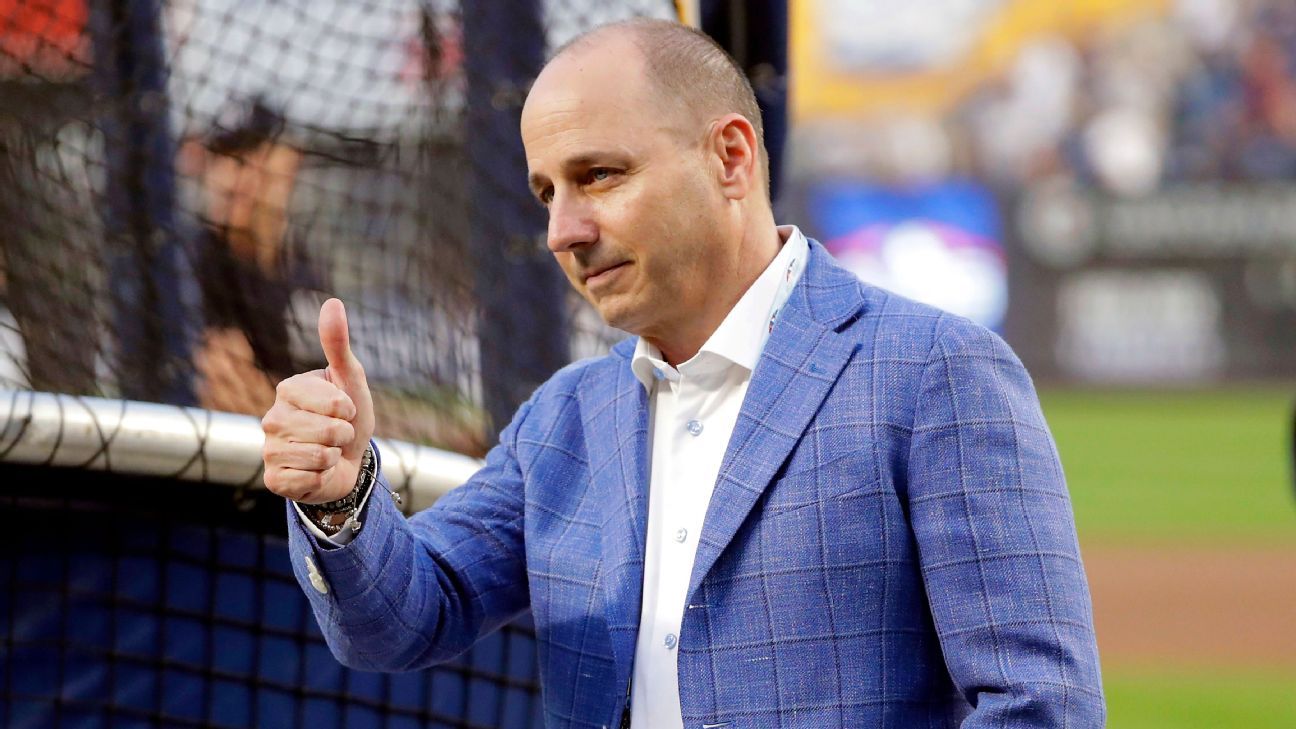WASHINGTON — New York Yankees general manager Brian Cashman said Wednesday he supports the right of players to express themselves in solidarity with the Black Lives Matter movement.
Addressing the widespread Black Lives Matter protests on the eve of Opening Day, Cashman said on a video conference, “That’s a manifestation of where our country currently is. Our country is, in many ways, the greatest country in the world, and in some ways it’s broken. We are not all together and not all as one as we should be. And because of that, you’re seeing demonstrations like kneeling at the anthem. Part of our community is hurting when it shouldn’t be. And it’s been ignored for a long period of time.”
On Monday, San Francisco Giants manager Gabe Kapler became the first coach in the majors to take a knee during the anthem, doing so alongside several of his players before an exhibition game against the Athletics in Oakland as a means to speak out against racial injustice. In 2017, former A’s catcher Bruce Maxwell became the first major league player to take a knee.
Cashman said he would support any Yankee who decided to kneel.
“The great part of America is there’s different ways to express yourself, and different platforms to utilize how you express yourself and in some cases that happens to be kneeling during the anthem,” he said. “I support the expression of the ability for somebody to protest in the way they see fit.”
Cashman, GM of the Yankees since 1998, added that the team has been having “difficult” internal discussions about how to promote change. According to a Yankees employee, other than guest instructors, the organization has only two Black coaches: bullpen coach Mike Harkey and hitting coach Marcus Thames, both of whom are at the major league level.
“I engaged a number of our Black employees, whether it was on our major league coaching staff, whether it was people within our front-office ranks. We met with a number of our minor league Black players and we actually started the conversations to get a sense of how are they doing, what can be done better, and how can we be a part of more positive change,” Cashman said. “There were very difficult conversations, real personal stories that were shared. During conversations with our players in the minor leagues, because there is systemic racism, you can misinterpret if you’re split up in the batting groups for instance, maybe our Black players thought it was because they’re being separated because they’re Black, when it wasn’t the case. So it was a really healthy dialogue.
“But some of the more personal conversations, like, I have a daughter, Grace. When I was teaching her how to drive, I don’t have that extra conversation. I don’t have to teach her about what to do when you’re pulled over, or how to act a certain way, but other people that I am working alongside with who are Black they have to have a different conversation. And listening that there is that extra step that someone that I care a great deal for has to do from their side as a parent, it’s very difficult to hear. I always try to preach and create the culture of if you have a suggestion or if there is something that we can do better, this is a safe environment that you can feel free to share, to confront, to discuss, so we can find higher ground.”

